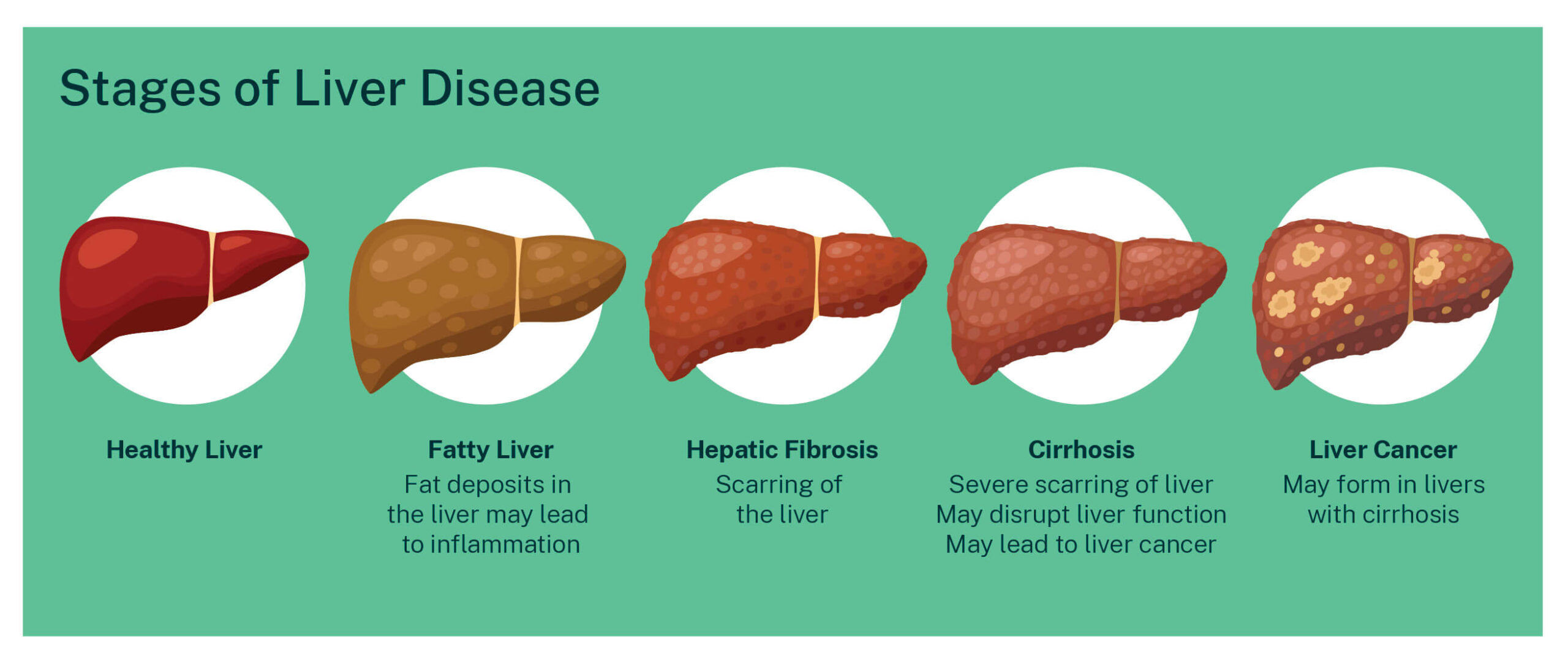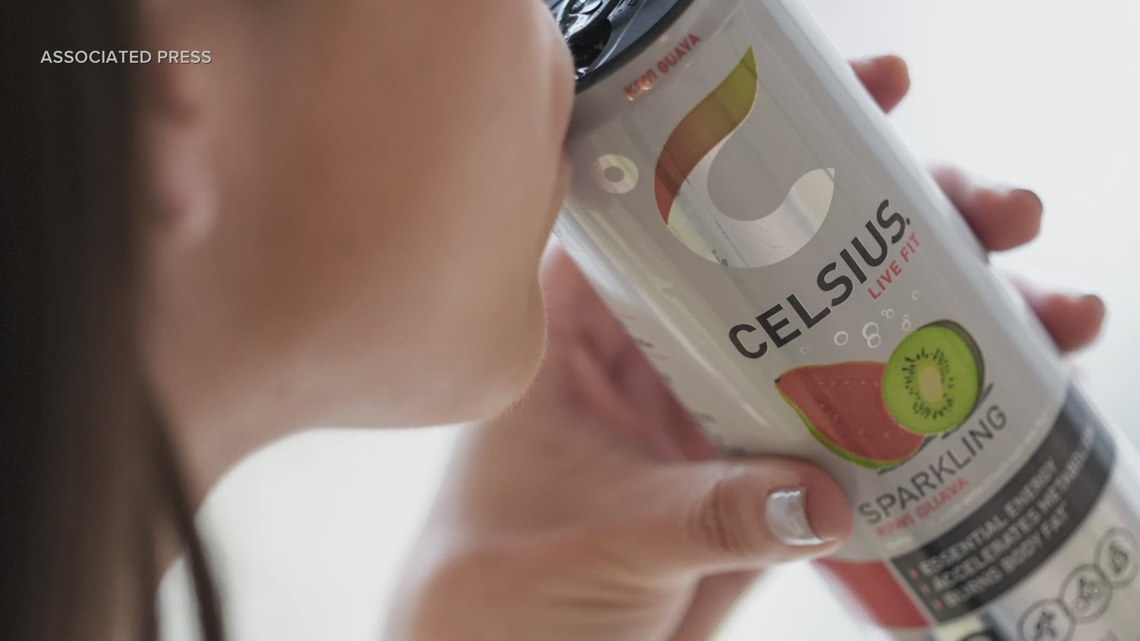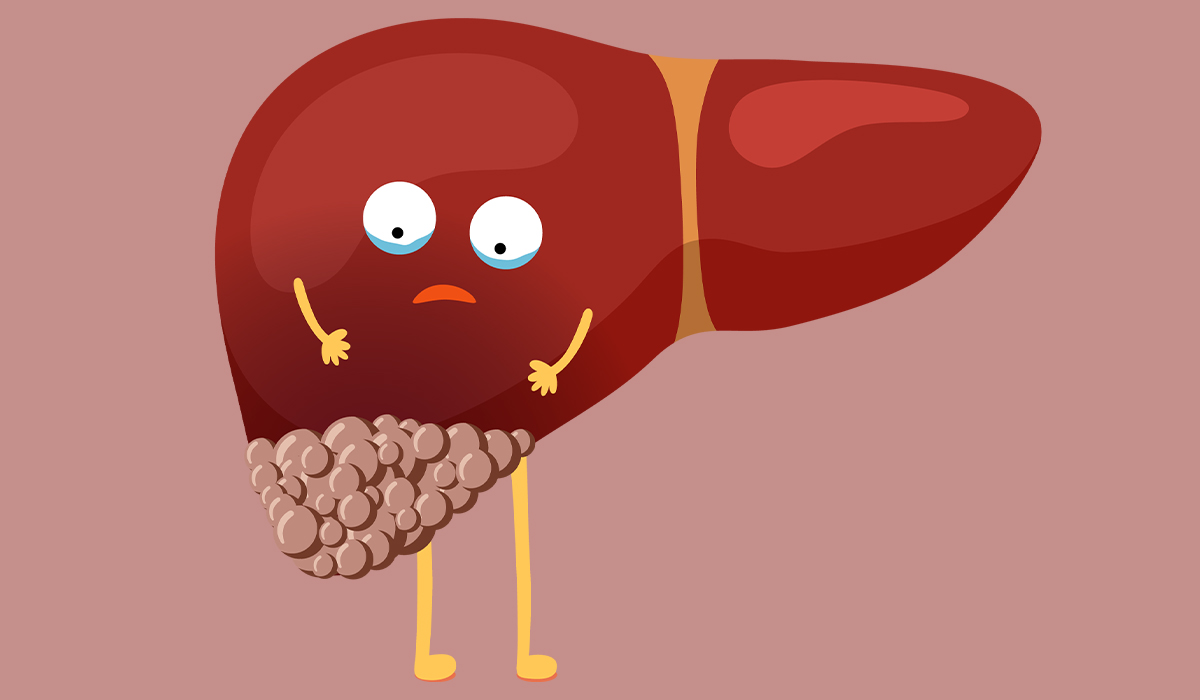Celsius And Liver Damage: The Hidden Link You Need To Know About
When it comes to health, we often overlook the impact of temperature on our internal organs. But did you know that extreme temperatures, especially in Celsius, can significantly affect liver health? The liver is one of the hardest-working organs in your body, and it deserves all the care you can give. Whether you're dealing with freezing winters or scorching summers, understanding how temperature impacts liver damage is crucial for maintaining overall well-being.
Imagine this: you're chilling in a cold room with the AC cranked up to 10 degrees Celsius, or maybe you're out in the scorching sun where the temperature hits 40 degrees Celsius. Both scenarios might seem harmless, but they can wreak havoc on your liver if you're not careful. It's not just about feeling cold or hot; it's about how your body reacts internally to these temperature changes.
Now, you might be thinking, "How does temperature even relate to liver damage?" Well, buckle up, because we're about to dive deep into this topic. By the end of this article, you'll have a clearer understanding of how temperature in Celsius can influence liver health, and more importantly, what you can do to protect yourself.
Read also:Get Up Cast Members The Ultimate Guide To Your Favorite Morning Show Stars
Understanding Liver Damage
What Exactly is Liver Damage?
Let's break it down. Liver damage, or hepatic injury, refers to any harm done to the liver that affects its ability to function properly. This can happen due to various reasons, including infections, toxins, alcohol, medications, and yes, extreme temperatures. The liver plays a critical role in detoxifying your blood, producing essential proteins, and storing energy. So, when it gets damaged, your whole body feels the effects.
Common signs of liver damage include fatigue, nausea, yellowing of the skin (jaundice), abdominal pain, and swelling. If left untreated, it can lead to serious conditions like cirrhosis or liver failure. But here's the kicker—temperature fluctuations in Celsius can exacerbate these issues, especially if you already have an underlying liver condition.
Temperature and Liver Health
The Impact of Celsius on Liver Function
Now, let's talk about how Celsius comes into play. Your body has an ideal temperature range where it functions best, usually around 37 degrees Celsius. When the external temperature drops or rises significantly, your body has to work harder to maintain this internal balance. This extra effort can put stress on your liver, making it more vulnerable to damage.
For instance, in freezing conditions, your liver might struggle to process toxins effectively because your blood flow slows down. On the flip side, in extreme heat, your liver could get overwhelmed by the increased metabolic demands as your body tries to cool itself down. It's like asking your liver to run a marathon without proper training!
Extreme Cold: A Silent Threat
How Freezing Temperatures Affect the Liver
When the thermometer dips below 0 degrees Celsius, your body starts conserving heat by constricting blood vessels. While this is great for keeping your core warm, it can reduce blood flow to peripheral organs, including the liver. Reduced blood flow means less oxygen and nutrients reaching the liver, which can impair its ability to detoxify your blood and metabolize fats.
Moreover, cold temperatures can increase stress hormones like cortisol, which may worsen inflammation in the liver. If you're someone who already has fatty liver disease or hepatitis, exposure to extreme cold could make things worse. So, next time you're tempted to stay outside in the frosty air for too long, remember to bundle up and protect your liver!
Read also:Does Serena And Andy Get Back Together The Ultimate Breakdown Of Their Love Story
Extreme Heat: The Other End of the Spectrum
The Dangers of High Temperatures on Liver Health
On the other end of the spectrum, temperatures above 35 degrees Celsius can also pose risks to liver health. In high heat, your body sweats to cool down, which can lead to dehydration. Dehydration reduces blood volume, forcing your heart to pump harder and your liver to work overtime to compensate. This increased workload can strain an already stressed liver.
Additionally, heat stress can trigger oxidative stress, which is like a chemical imbalance that damages cells in your liver. This is particularly concerning if you're taking medications that are already taxing your liver, as the combination of heat and meds can amplify the damage. So, staying hydrated and avoiding prolonged exposure to high temperatures is key to protecting your liver.
Preventing Liver Damage in Extreme Temperatures
Tips to Keep Your Liver Safe
Now that you know how extreme temperatures in Celsius can harm your liver, here are some practical tips to keep it safe:
- Stay hydrated, especially in hot weather. Drink plenty of water to maintain blood volume and support liver function.
- Dress appropriately for the weather. Wear warm layers in cold temperatures and breathable fabrics in heat.
- Avoid alcohol and medications that are hard on the liver, especially during extreme weather conditions.
- Eat a balanced diet rich in antioxidants, which can help protect your liver from oxidative stress.
- Exercise regularly to improve blood circulation and support liver health.
Scientific Evidence: The Link Between Temperature and Liver Health
Research Supporting the Connection
Studies have shown that temperature fluctuations can indeed impact liver health. For example, a study published in the "Journal of Hepatology" found that exposure to extreme cold can increase liver enzyme levels, indicating potential damage. Another study in "Environmental Health Perspectives" highlighted how heat stress can lead to liver inflammation and oxidative stress.
These findings underscore the importance of managing temperature exposure to safeguard liver health. By understanding the science behind it, we can take proactive steps to protect ourselves and our livers from the harmful effects of extreme temperatures.
Common Myths About Temperature and Liver Health
Separating Fact from Fiction
There are plenty of myths floating around about temperature and liver health. Let's debunk a few:
- Myth 1: Drinking warm water is enough to protect your liver in cold weather. While warm water can be soothing, it's not a substitute for proper insulation and hydration.
- Myth 2: Only alcoholics need to worry about liver damage. Anyone can experience liver issues due to environmental factors like temperature.
- Myth 3: Heat is always bad for the liver. Moderate heat, like that from saunas, can actually improve circulation and support liver health if done safely.
Real-Life Stories: Personal Experiences with Temperature-Related Liver Issues
Case Studies and Testimonials
Hearing real-life stories can make this topic more relatable. Take Sarah, for example. She lived in a region where temperatures frequently dropped below -10 degrees Celsius. After years of enduring the cold without proper protection, she developed non-alcoholic fatty liver disease. Once she started wearing warmer clothes and taking liver-supportive supplements, her condition improved significantly.
Then there's John, who spent long hours working outdoors in 45 degrees Celsius heat. He noticed increased fatigue and abdominal discomfort, which turned out to be signs of liver stress. By adjusting his work schedule and staying hydrated, he managed to prevent further damage.
Conclusion: Protect Your Liver, No Matter the Weather
To sum it up, temperature in Celsius plays a significant role in liver health. Whether it's freezing cold or scorching hot, extreme temperatures can stress your liver and potentially cause damage. By staying informed, taking preventive measures, and listening to your body, you can keep your liver in tip-top shape.
So, what are you waiting for? Share this article with your friends and family to spread awareness about the connection between temperature and liver health. And remember, if you ever feel like your liver might be under strain, don't hesitate to consult a healthcare professional. After all, your liver works hard for you—so give it the love and care it deserves!
Table of Contents
- Understanding Liver Damage
- Temperature and Liver Health
- Extreme Cold: A Silent Threat
- Extreme Heat: The Other End of the Spectrum
- Preventing Liver Damage in Extreme Temperatures
- Scientific Evidence: The Link Between Temperature and Liver Health
- Common Myths About Temperature and Liver Health
- Real-Life Stories: Personal Experiences with Temperature-Related Liver Issues
- Conclusion: Protect Your Liver, No Matter the Weather


